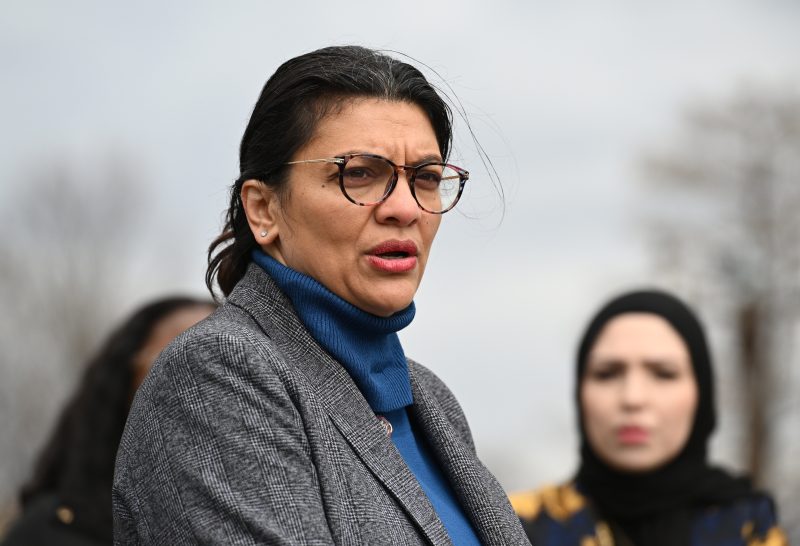U.S. Representative Rashida Tlaib of Michigan is facing criticism from fellow Democrats after making remarks last week suggesting that Palestinians should be seen as equals and allies in the ongoing Israeli-Palestinian conflict. Tlaib, the first Muslim woman to be elected to Congress and now a part of the progressive wing of the Democratic Party, spoke out at a conference in D.C. last week, suggesting a “One-state solution” and sparking immediate backlash from both Democrats and Republicans.
Her comments were quickly met with opposition from leading Democrats, including Senator Chris Coons of Delaware. In an appearance on ABC’s This Week on Sunday, Coons stated that he did not “support any calls for economic isolation or any steps that would harm Israel, or Palestinians, or the prospects for a lasting peace” as such measures would be “incredibly destructive and short sighted”.
The issue of Palestinian independence and its place in the ongoing Israeli-Palestinian conflict has long been a contested and highly contentious issue for Democrats. Though some Democrats, such as Tlaib, argue for the creation of a unified country in which Israelis and Palestinians live side-by-side as equals, there are still many Democrats who oppose such an idea.
For Tlaib, her opposition to the two-state solution for the Israeli-Palestinian conflict is rooted in her identity as a Palestinian-American. Born to Palestinian immigrant parents in Detroit, Tlaib has regularly voiced her strong support for the Palestinian cause, and has vehemently criticized Israeli policies regarding settlements and control of the West Bank.
The criticism of Tlaib’s comments is indicative of the growing rift within the Democratic Party over the Israeli-Palestinian conflict. Some members of the party, like Tlaib, argue for a stronger show of support for the Palestinians, while other members of the party have voiced opposition to the idea and have vowed to oppose any measures that could jeopardize the two-state solution. As the party looks to move forward on the issue, it remains divided on how to move forward while respecting the rights of both sides.






























